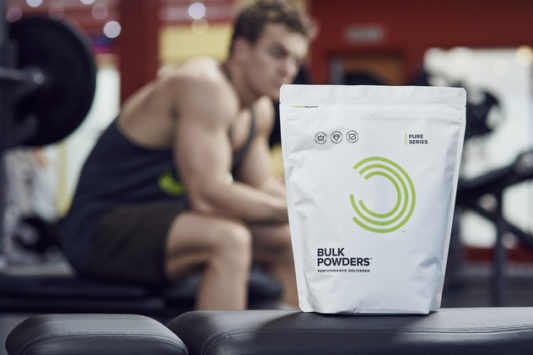FAT LOSS VS WEIGHT LOSS: THE GREAT DEBATE – WHICH SHOULD YOU MONITOR?
One of, if not the most common goal trend we see within the fitness industry is “weight loss”. Weight loss is associated with a slimmer physique, a loss of fat and an increase in muscle tone. It’s also the main key term used by an abundance of health and wellness companies. However, whether you should be paying such close attention to your weight is questionable, and this article should help you to understand how to most accurately monitor your progress towards achieving your goal body composition.
WEIGHT LOSS
While tracking the amount of weight you lose can be a great source of motivation, it can also be quite deceiving. Tracking weight loss has become an extremely popular method of measuring results, with many brands sharing success stories of their customers and clients who’ve lost significant amounts of weight. Unfortunately, a high amount of people who lose weight still aren’t happy with their body composition, don’t feel as energised as they thought they would, and still have areas they just can’t seem to lose fat from.
If you’d like to listen to some of the potential reasons as to why monitoring weight loss may not be the best method of tracking progress, I’m about to delve into the specifics.
4 REASONS WEIGHT LOSS ISN’T THE BEST METHOD OF TRACKING PROGRESS
1) WATER RETENTION
It’s not often that a person consumes the same amount of water each and every day. And, as crazy as it seems, water has a very big impact on your weight due to a number of reasons. 1L of water weighs 1kg, and so if you were to drink 1L of water and weigh yourself before you’ve been to the bathroom and then after, you’d have different recordings of weight on the same day perhaps just minutes apart.
When exercising, the body sweats and therefore water is lost. How much water or liquid you drink throughout your workout will determine whether your weight increases or decreases afterwards as a result. There are also certain foods which soak up water and cause your body to retain more than others, which have an effect on your weight too. For instance, the chemical sodium which is found in salt and processed foods, is used as a preservative and is one of the main culprits of water retention.
For example, one day we may consume a higher amount of sodium than another and drink a different amount of liquid. So, our weight can differ largely without even stepping foot outside or expending any calories through exercise.
2) DRASTIC CALORIE DEFICIT
In terms of the amount of food you eat, believe it or not, there’s actually a limit to how much fat you can lose over the course of a week. On average, the upper-end rate of fat loss is around 0.5-1.5lbs per week. An overweight or obese person can expect to lose between 0.5-1lb of fat safely per week, the potential amount for those who are severely obese is slightly higher at around 1-1.5lbs per week.
Weight loss can go one of two ways; you can either experience a slow reduction in weight which may be disheartening, or a fast reduction in weight which you may perceive to be motivating. When weight loss is fast, it’s common for people to be in a drastic deficit of calories. As weight loss for a person with a large calorie deficit slows down, the fix is usually to make the deficit even more drastic, until eventually the amount of food being consumed is simply not enough to sustain a healthy body.
A reduction in calories too severe will lead to an unhealthy body and is simply unsustainable. More often than not, people with too great a deficit experience negative impacts to their wellbeing and mood, and find themselves putting the majority of the weight they lost back on within a couple of months’ time.
3) MUSCLE LOSS
Problematically, a calorie deficit too low will not solely result in fat loss. As the body is not capable of losing kilograms of fat per week, muscle will unfortunately be metabolised if your deficit is too great.
Fast weight loss is often a bad sign.
A deficit of 3500 calories could equate to 1lb of fat loss over the course of a week (500 calories per day, x7 days = 3500kcals). However, as the body is not capable of losing fat at a much faster rate, any weight loss beyond this point is likely to come from muscle tissue.
Muscle is denser than fat, and 1g of protein contains just 4kcals while 1g of fat contains 9kcals. 1lb of fat occupies a larger space than 1lb of muscle, and so 1lb of muscle can be metabolised much quicker than fat, as it occupies less space and is formed using less calories. In terms of the number of calories in 1lb of muscle, 600-700kcals could result in a loss of 1lb in muscle tissue. With this being said, it’s easier to lose 1lb from muscle than it is from fat, because 1lb of muscle requires less calories to metabolise than 1lb of fat.
If you experience weight loss at a faster rate than 1.5lbs per week, the chances are, you’re losing muscle mass, which shouldn’t be your aim.
4) LACK OF ACTIVITY
When in a calorie deficit, it’s almost inevitable that you’ll lose a small amount of muscle. However, you should be making a great effort to maintain as much of your muscle tissue as possible when using a calorie deficit to benefit your body composition.
It’s highly important that you consume enough protein when in a calorie deficit to sustain the amount of muscle on your frame. Usually 1g of protein per 1lb of Lean Body Mass (LBM) should be enough. However, you’ll also need to keep those muscles moving.
The human body reacts to stimulus; however, it simply just wants to survive. So, if you neglect your muscles and do not use them when in a calorie deficit, your body could metabolise the muscle for energy as discussed above. However, if you utilise your muscles and perform resistance training exercises for each muscle group while in your calorie deficit, making use of your muscles will send your brain the message that your muscles are a necessary part of your physique.
If you’re losing weight too quickly while not exercising within a calorie deficit, and you’re wondering why your body composition still doesn’t look the way you want it too, this may be one of the reasons.
FAT LOSS
As mentioned earlier, a deficit of 3500kcals may result in around-about 1lb of fat loss (over the period of 1 week) and any quicker loss of weight than this will most likely result in the loss of muscle. As much as a quicker rate of weight loss may seem appealing, it’s important to understand how much fat the body can lose efficiently and safely.
Weight loss can be a good method of measure for progress, but you must understand how much weight loss you should be aiming for. If you’re continuously losing 0.5-1lb per week, that’s great progress. However, if you’re losing weight at a quicker rate this is likely an indication that you need to reduce your calorie deficit. Hopefully this article has helped you to understand the rate of weight loss you should be aiming to maintain.
While aiming for a certain weight can be beneficial; unless you’re a professional athlete with a weight category to hit, you should probably focus on fat loss slightly more than weight loss to monitor your progress. Taking into consideration the fact that a loss in fat will benefit your body composition more than a loss in weight, it would seem most appropriate to track fat loss (body fat percentage) by using skin fold calipers, electrolysis or other means as a method of tracking body composition progress safely and accurately to record and monitor your results.
TAKE HOME MESSAGE
Remember to stick to a sensible deficit in calories while consuming enough protein, maintain your exercise regime and make sure you incorporate resistance training when aiming to benefit your body composition through a calorie deficit. Fat loss should be your aim to improve body composition, rather than weight loss which is more often than not just a number on the scales.





